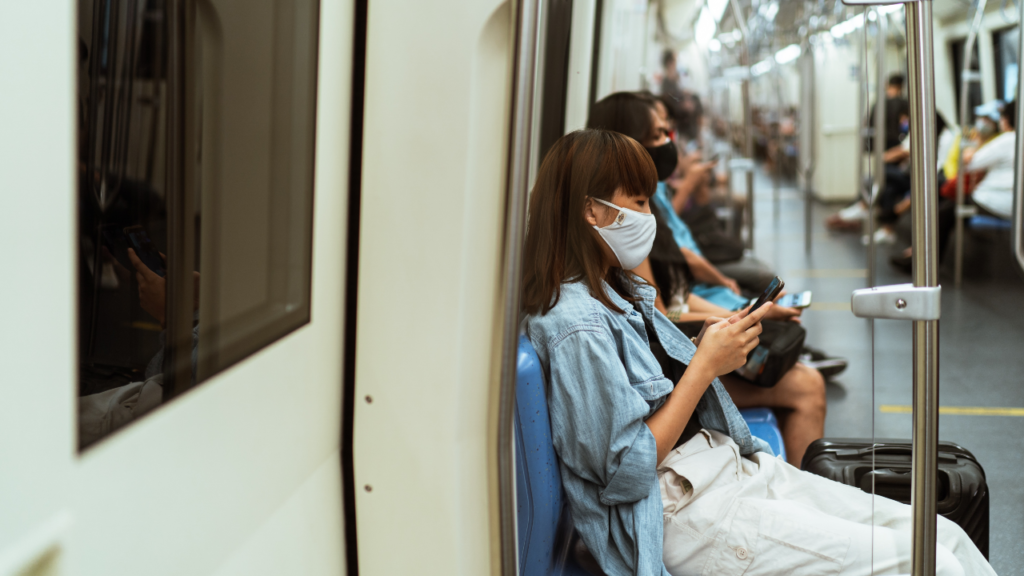
New coronavirus infections and deaths may be on the decline in many parts of the world but vigilance, vaccination, and informed public health measures are still needed.
That was the message from officials with the Pan American Health Organization (PAHO), whose parent is the World Health Organization, on Wednesday.
Dr. Carissa Etienne, director of PAHO, said during the organization’s weekly briefing that although weekly new cases and deaths have declined in America’s region, the pandemic isn’t over yet.
“We need to continue to be vigilant because there may be the emergence of a new variant that can spread rapidly that can cause more illness and death,” she said Wednesday. “Vigilance, is necessary, as well as ensuring our public health measures and vaccinations.”
PAHO represents all countries in the Americas region, including Canada and Caribbean nations.
According to Etienne, there were 2.2 million new cases for the entire PAHO region over the past week — a 28 per cent decline from the previous week — while weekly deaths for the entire region fell for the first time since the beginning of the Omicron wave.
While that sounds good, Etienne expressed concerns about the situation in some countries.
“Although cases dropped by a third in North America, Mexico reported a 70 per cent increase in new infections. While deaths declined in the United States, the rate is still among the highest that we’ve seen throughout the pandemic,” she said. “In Chile, ICU admissions accelerated by a quarter and deaths increased by 37 per cent.”
Public health measures still needed, officials say
A continued decline of cases and hospitalizations has prompted many countries around the globe as well as Canadian provinces, including B.C., and U.S. states to either reduce or entirely eliminate many of the COVID-19 public health measures that had been in place.
Alberta has dropped its vaccine passport program, no longer requires masks for K-12 students and reduced or eliminated other safety measures. Saskatchewan has also ended its vaccine passport requirements while Prince Edward Island expected to do so in the coming days.
Here in British Columbia, bars and nightclubs are fully opened and capacity limits have been eliminated for venues and events but the vaccine passport remains in place.
In the U.S., an increasing number of states have already dropped mask mandates or no longer recommending their use indoors. California, last week, became the first state to adopt what it calls, an “endemic” policy approach to the virus.
Dr. Ciro Ugarte, director of health emergencies, said during the PAHO briefing Wednesday that history seems to repeat itself whenever restrictions are loosened.
“Something we have learned during the pandemic is that when we relax the measures when we are in low transmission levels, usually or one or two weeks after the number of cases increases rapidly, and of course, also, later on, the number of deaths,” he said, noting that countries in PAHO are advised to regularly adjust their pandemic response according to their own specific situation.
Dr. Etienne stressed that the pandemic is not over and Omicron is still spreading rapidly in other parts of the world — South Korea, Hong Kong and Singapore are among a handful of Asia countries experiencing a rapid increase in new cases — and that public health measures are still needed.
“Because of the rapid spread of Omicron and the possibility of other variants, we have to continue effective public health and social measures to drive down transmission,” she said.
Caribbean concerns
During Wednesday’s briefing, officials briefly touched on North America and did not mention Canada, instead choosing to focus their attention on the Caribbean region.
Dr. Etienne expressed specific concern about the pandemic situation in the Caribbean. She said of the 13 countries in the PAHO region that reported an increase in deaths over the past week, more than half were in the Caribbean.
“This shows that many places are still in the midsts of an Omicron surge, so we must stay vigilant and recall the measures that have been proven to save lives,” she said.
The Caribbean, said Etienne, is a diverse region with many inequalities that has struggled throughout the pandemic, especially when it comes to vaccination rates.
“Out of 13 countries and territories in the America’s that have not yet reached the WHO’s goal of 40 per cent [vaccination] coverage, 10 are in the Caribbean.”
According to OurWorldInData.org, 87 per cent of people in the Cayman Islands have had at least two doses of vaccine, compared to just 22 per cent in Jamacia. In Hati, a country with about double the population of British Columbia, less than 2 per cent have been vaccinated.
Among the reasons for the low rates, Etienne said, is because the vaccination centres in some countries are located in centralized areas that are difficult for many in rural areas to access, while in other countries it is due to staffing shortages and vaccine hesitancy among the population.
“Some people have not gotten vaccinated because they do not see COVID as a risk to themselves, yet the spread and death toll of Omicron has shown that underestimating this virus only fuels the pandemic and leads to more suffering,” she said.
Data from numerous countries and regions continue to show that unvaccinated individuals continue to have high rates of infection and hospitalization. The latest data from the B.C. government shows that the rate of hospitalization for unvaccinated individuals over the past two weeks was significantly higher than it was for fully vaccinated individuals.
Going forward, Etienne said a global vaccination effort combined with proper public health measures is needed in order to protect those most at risk and reduce pressure on health-care workers.
“We have to expand vaccinations to cover everyone who is eligible after we protect those high priority groups because of the rapid spread of Omicron and the possibility of other variants, we have to continue effective public health and social measures to drive down transmission,” she said.




